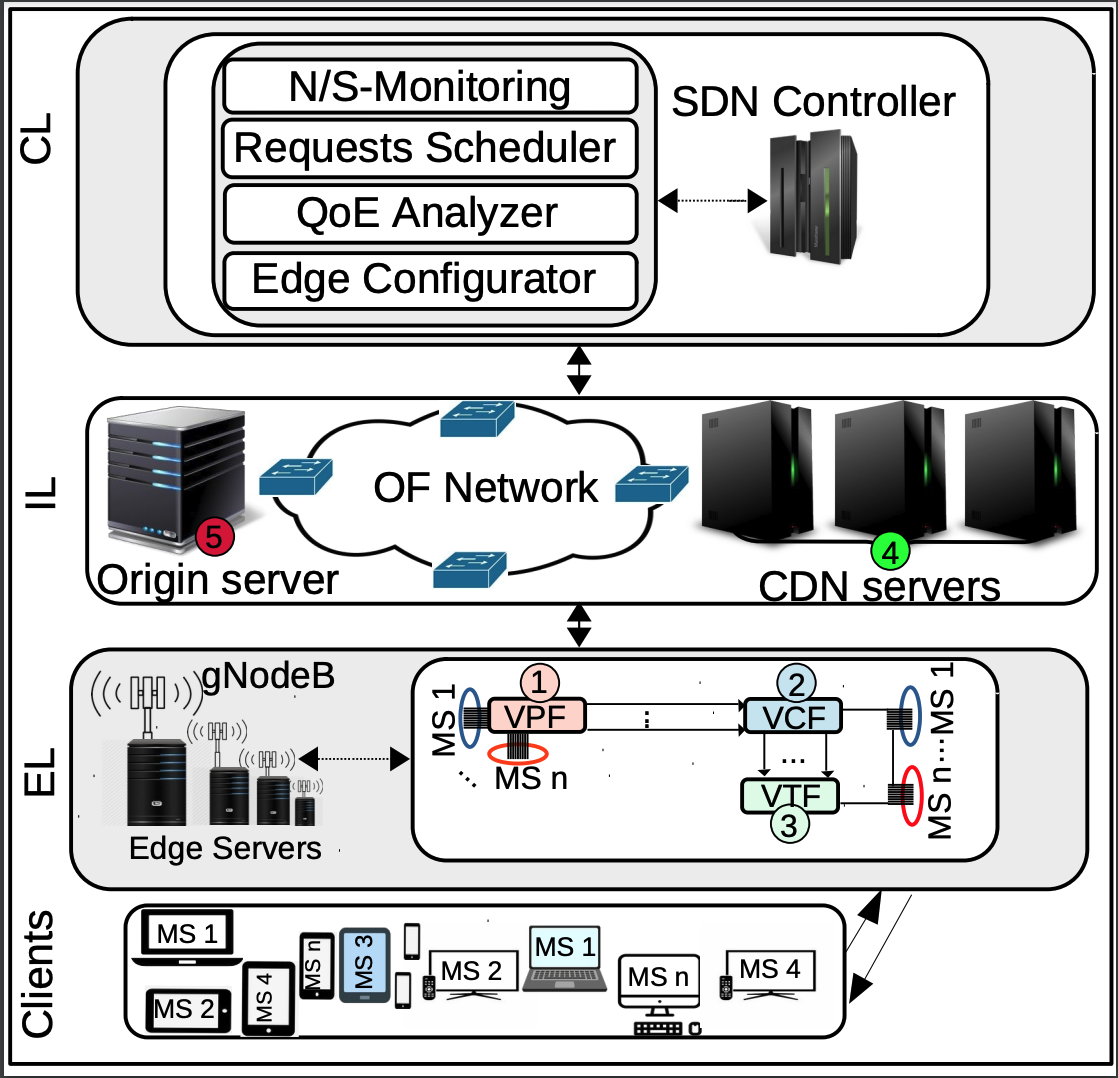Paper accepted: SARENA: SFC-Enabled Architecture for Adaptive Video Streaming Applications
IEEE International Conference on Communications (ICC)
28 May – 01 June 2023– Rome, Italy
Reza Farahani (Alpen-Adria-Universität Klagenfurt), Abdelhak Bentaleb (Concordia University, Canada), Christian Timmerer (Alpen-Adria-Universität Klagenfurt), Mohammad Shojafar (University of Surrey, UK), Radu Prodan (Alpen-Adria-Universität Klagenfurt), and Hermann Hellwagner (Alpen-Adria-Universität Klagenfurt)
Abstract: 5G and 6G networks are expected to support various novel emerging adaptive video streaming services (e.g., live, VoD, immersive media, and online gaming) with versatile Quality of Experience (QoE) requirements such as high bitrate, low latency, and sufficient reliability. It is widely agreed that these requirements can be satisfied by adopting emerging networking paradigms like Software-Defined Networking (SDN), Network Function Virtualization (NFV), and edge computing. Previous studies have leveraged these paradigms to present network-assisted video streaming frameworks, but mostly in isolation without devising chains of Virtualized Network Functions (VNFs) that consider the QoE requirements of various types of Multimedia Services (MS).

To bridge the aforementioned gaps, we first introduce a set of multimedia VNFs at the edge of an SDN-enabled network, form diverse Service Function Chains (SFCs) based on the QoE requirements of different MS services. We then propose SARENA, an SFC-enabled ArchitectuRe for adaptive VidEo StreamiNg Applications. Next, we formulate the problem as a central scheduling optimization model executed at the SDN controller. We also present a lightweight heuristic solution consisting of two phases that run on the SDN controller and edge servers to alleviate the time complexity of the optimization model in large-scale scenarios. Finally, we design a large-scale cloud-based testbed, including 250 HTTP Adaptive Streaming (HAS) players requesting two popular MS applications (i.e., live and VoD), conduct various experiments, and compare its effectiveness with baseline systems. Experimental results illustrate that SARENA outperforms baseline schemes in terms of users’ QoE by at least 39.6%, latency by 29.3%, and network utilization by 30% in both MS services.
Index Terms—HAS; DASH; NFV; SFC; SDN, Edge Computing.

